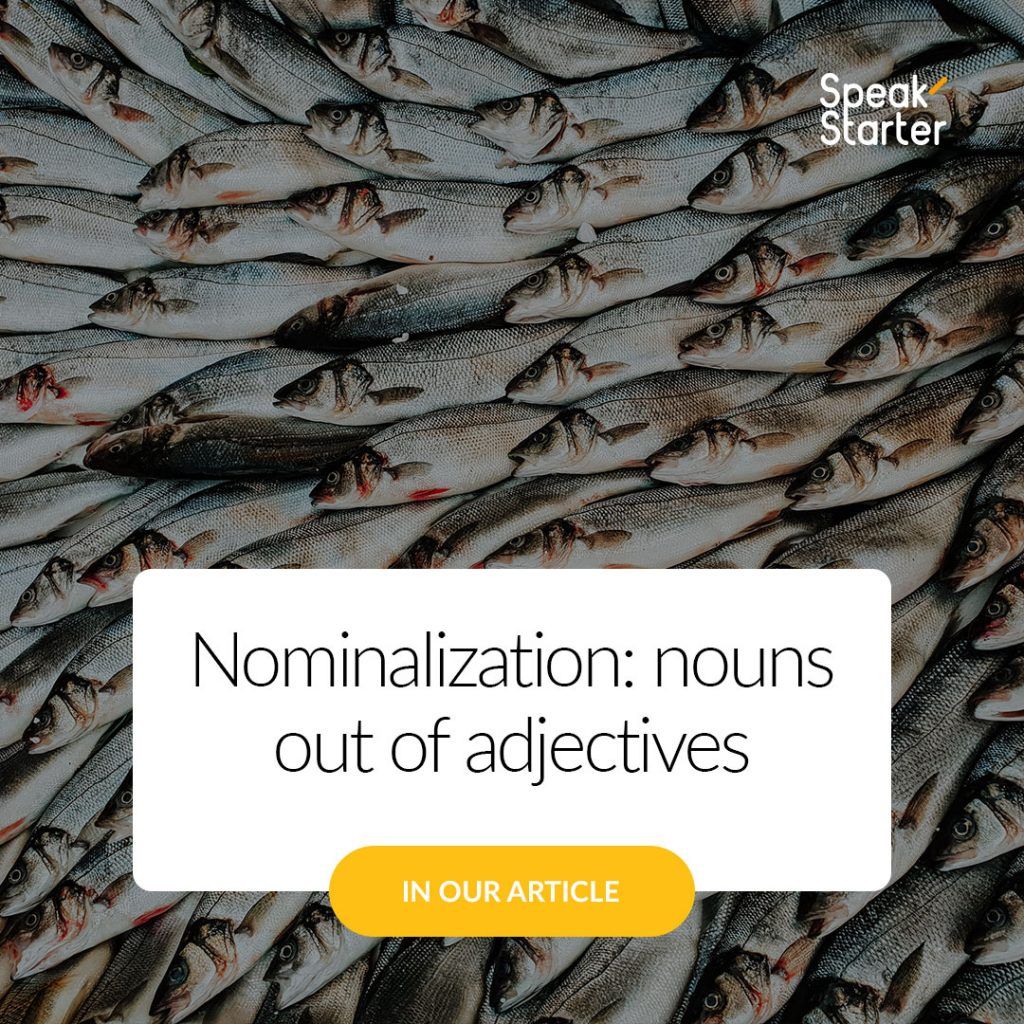Today’s grammar material is devoted to how to make names of nouns (who? what?) from adjective names (which? which? which? whose?).
For example, we have the adjective name “alt”. – “old.” To make it an “old” noun, we add an ending that depends on the verb and noun type:
Masculine:
Nominativ: Der Alte / ein Alter;
Akkusativ: den Alten / einen Alten;
Dativ: dem Alten / einem Alten;
Genetiv: des Alten / eines Alten;
The Definitive article (der/die/das) shows us the gender of a noun name, while the Definitive may not show us the gender of a noun name (identical masculine and middle). Therefore, as you can see, the genus of such nouns with the Definitive article is determined by the ending.
Feminine (in the name of the adjective “arbeitslose” is “unemployed”):
Nominativ: die Arbeitslose / eine Arbeitslose;
Akkusativ: die Arbeitslose / eine Arbeitslose;
Dativ: der Arbeitslosen / einer Arbeitslosen;
Genetiv: der Arbeitslosen / einer Arbeitslosen;
In the case of the female genus it is a little easier, because Nominativ is the same as Akkusativ, and Dativ is the same as Genetiv. So why is the ending “n” added? The matter is that such nouns are inclined as adjectives in genera and cases anyway. The only difference is that they’re spelled with a capital letter.
Multiple numbers (only masculine and feminine can be elevated to plural by this rule):
Nominativ: die Kranken / Kranke – sick;
Akkusativ: die Kranken / Kranke;
Dativ: den Kranken / Kranken;
Genetiv: der Kranken / Kranker;
The situation is a little different with the average birth.
After “alles” and “das” we add the ending “-e” (and write with capital letter): alles Gute, das Neue.
Ich wünsche dir alles Gute zum Geburtstag – I wish you all the best for your birthday;
Ich kaufe mir nur das Neues – I only buy myself new.
And after “etwas” – “something”, “nichts” – “nothing”, “ein bisschen” – “little”, “wenig” – “little”, “viel” – “much”:
Ich muss die etwas Schlechtes erzählen – I must tell you something bad.
With an undefined article, the middle class is not used, but it is replaced by etwas, nichts, ein bisschen, wenig, viel and some others.
I mean, it’s actually very simple. We want to make an adjective a nominative – just write it with a capital letter. And if you don’t know how to bend adjectives by birth and case, then we have an article about it.

